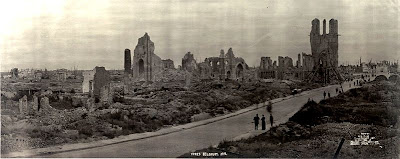Because we’re nearing the 97th anniversary of the outbreak of the Great War, I thought I’d invite a guest blogger to tell us something about her life at that time.
Hello, my name is Victoria Wyndham, known to close friends and family as Ria. I'd like to introduce you to some of them. Well, perhaps a few words about me first.
Grandmother says I'm incorrigible and impulsive, while Father calls me willful, thoughtless, and disobedient. My mother died when I was born and he has never forgiven me for that.
Prickly Aunt Phyllis has condemned me as a "brazen troublemaker" and “undisciplined hoyden”, but of course, she has never liked me, nor I, her. Luckily Aunt Olivia and Uncle Richard have always been generous and loving, so that I feel very much a part of their large brood, and particularly close to my twin cousins, Zoë and Max, who are my age. Max is such a tease, and Zoë is clever and wonderfully outspoken, even with Grandmother. They're onboard for any adventures that I dream up.
Stuffy cousin Henry claims that I'm reckless and always venture beyond the bounds of his imagination. His younger sister, Phoebe, is surely more inclined to do that, since she is quite mad, and talks to her sinister two-faced doll - who apparently replies. Their brother, Edgar, is easily the most likeable of Aunt Phyllis and Uncle Albert's children, although Grandmother thinks him too self-indulgent.
I should explain that we have a summer home on Wyndwood Island on a pristine lake in Muskoka, about 100 miles north of Toronto, where we live the rest of the year. We Wyndhams spend three or four months together at the cottage every summer, which doesn't always make for harmonious relationships. Especially after Jack arrived.
None of us knew, until this summer of 1914, that we have more Wyndham cousins! Jack’s father was disowned for marrying a “showgirl”. Jack is a charmer, and devilishly handsome - “divine,” as Lydia Carrington remarked. Grandmother admires him as well, although she doesn’t trust him. She thinks that because he grew up so poor, he will be ruthless, and use everyone to get ahead. She would be scandalized if she knew how Jack and I first met. He has three younger sisters, one whose remarkable voice has already been noticed by a Broadway composer. The eldest, Lizzie, is a bit harder to like, although I can’t put my finger on why.
Cousin Bea - Lady Beatrice Kirkland - who is visiting us from England this summer, is truly sympathetic, but she thinks that I have "the unfortunate habit of running away when things get tough". She just doesn't understand how soul shattering some "things" are!
Chas Thornton told me at a ball that I have "the most stunning eyes. Like azure pools. A chap could drown in them." Chas is an outrageous flirt! And tremendous fun. He enjoys life and radiates joy. His family, one of the richest in Canada, owns several neighbouring islands. Our friend Ellie thinks he's "absolutely beautiful" and adores him, even though she detests his lifestyle and lack of ambition.
Of course Ellie - Eleanor Carlyle - doesn't approve of conspicuous wealth. A medical student, she is also something of a crusader, with perhaps too much of a social conscience. She would populate our homes - which she finds obscenely large - with unwed mothers and orphans. But I love her down-to-earth honesty, and she is the staunchest of friends. Her brother, Blake, is already a doctor, and very much the love of Zoë’s life, if only he would realize it!
Chas’s younger brother, Rafe, is rather dissolute, and unsettles me with his rapacious attentions. He seems to be a frustrated boy living in the shadow of his charismatic older brother. Perhaps his aggressiveness is a reaction to Chas’s gentility.
Justin Carrington, on the other hand, is the kindest and most gentlemanly friend. I had a terrific pash for him when I was fifteen, and now I fear that he has rather fallen for me. Grandmother is trying to encourage our marriage, maintaining that “friendship and mutual respect are far better than passion for building a good marriage.” But she doesn’t know where my heart lies.
I have many more friends, whom you can meet if you read The Muskoka Novels - The Summer Before The Storm and Elusive Dawn.
And I fear for my dear friends, as several are going off to war, Jack and Chas to become daring aviators. But we girls are not about to be left behind! We are as patriotic and plucky as the men. Zoë intends to become a VAD - a volunteer nurse. Ellie is almost finished her studies as a doctor. And I fancy driving an ambulance. Vivian Carrington and I are going to England aboard the Lusitania, the fastest and safest ship on the seas. Vivian did her VAD training and is using this as an excuse to meet up with her forbidden love, who’s already overseas in the Veterinary Corps.
I do wonder why our generation is being so severely tested. Have we been living in a fool’s paradise?
As for Muskoka, it’s our sanctuary. Once you visit our island with its majestic pines, sparkling granite, and distant vistas of craggy, tufted islands floating on the cobalt blue lake, you might understand why my soul hungers for it.
By the way, we always have room for guests at Wyndwood. Oh do come!



















